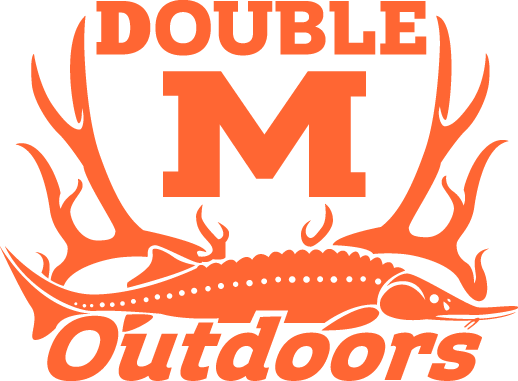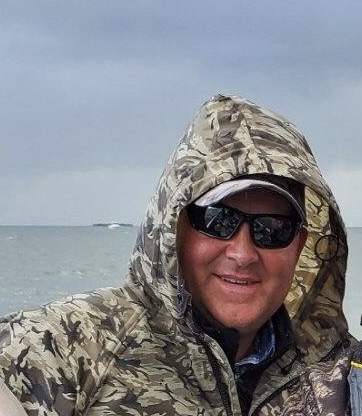Youth Hunting: Inspiring the Next Generation of Hunters
Tanner was glowing with happiness, his face lit up with pride as he stood over his first buck. The 11-year-old couldn’t believe he had made such a perfect shot, and he was thrilled that his dad, Matt Myers, was right there by his side to guide him. The moment was filled with joy—not just for Tanner, but for his dad, whose own happiness overflowed at seeing his son succeed.
This unforgettable memory was made possible through the Mentorship Program, an initiative available in many states to encourage youth hunting. Under this program, young hunters as young as 9 years old can use an adult’s hunting tag to gain hands-on hunting experience. For this hunt, Tanner used his dad’s tag, and it gave him the opportunity to experience the thrill and responsibility of big game hunting.
The mentorship program rules vary by state, with specific regulations designed to ensure safety and compliance. Parents and guardians interested in introducing their kids to hunting should carefully review their state’s hunting synopsis for details. Programs like these are invaluable for teaching young hunters about safety, ethical practices, and the importance of conservation. They are a cornerstone in getting more youth hunters involved in preserving the traditions of the sport.
The hunt took place on a wet, chilly October afternoon in the Mt. Hood National Forest. Rain poured steadily, and a slight breeze cut through the trees. Despite the weather, their spirits were high as they geared up in quality waterproof hunting clothes, ready for the challenges ahead. The biggest obstacle that day wasn’t the hike or finding deer—it was keeping everything dry, from our own clothes to our optics. I lived and hunted in this area for more than 30 years. You just don’t see it rain that hard very often.
Leading up to this hunt, Tanner and Matt spent hours preparing. They practiced shooting at the range as often as possible, working on different shooting positions, including using shooting sticks. These training sessions paid off when the moment finally came. Tanner spotted his buck, stayed calm, and executed a perfect shot. His reaction was pure joy—he couldn’t believe he had made such a great shot.
As his dad, I couldn’t have been prouder. All the time spent practicing, talking about safety, and preparing for this day had come together perfectly. Watching Tanner glow with excitement and confidence was a reward in itself. He called his mom and friends to share the news, his voice bubbling with pride and enthusiasm.
For both of them, this hunt was about more than harvesting a buck. It was about the bond they shared, the lessons Tanner learned, and the memories they created together. A first harvest only happens once, and this one was unforgettable. Programs like the Mentorship Program make moments like this possible, helping young hunters gain confidence, develop skills, and build a lifelong passion for the outdoors.
The Importance of Youth Hunting in Big Game Hunting
Youth hunting plays a crucial role in the continuation of big game hunting traditions. Introducing young hunters to the sport not only teaches them valuable outdoor skills but also fosters a deep respect for wildlife and conservation. Programs designed to encourage youth participation often focus on safety, ethical hunting practices, and the importance of sustainable hunting methods.
By involving the younger generation, we ensure that the passion for hunting and conservation efforts will persist for years to come. From deer hunting to elk hunting, youth hunters bring fresh energy and perspective to this time-honored activity.
The Historical Role of Youth in Hunting
Throughout history, hunting has been a rite of passage for young people. In many cultures, learning to hunt symbolized the transition from childhood to adulthood, instilling responsibility, resilience, and an understanding of nature’s cycles. Modern youth hunting continues this tradition, albeit with advancements in technology, education, and safety practices.
For example, indigenous communities have long emphasized the importance of passing down hunting knowledge to younger generations. This intergenerational transfer of skills not only preserves cultural heritage but also strengthens family and community bonds. Today, programs and organizations dedicated to youth hunting aim to replicate these traditions by offering structured mentorship opportunities.
Elk Hunting as a Gateway to Youth Sports
Elk hunting serves as an excellent entry point for young hunters. The challenge of tracking and harvesting an elk teaches patience, strategy, and resilience—qualities that are valuable both in hunting and in life. Many youth-focused hunting programs offer mentorship opportunities, pairing young hunters with experienced guides to ensure a safe and educational experience.
Moreover, elk hunting introduces young participants to the physical and mental demands of the sport, bridging the gap between hunting and other youth sports. It requires physical stamina, teamwork, and problem-solving skills, making it an enriching activity for kids and teens alike.
Conservation and Elk Hunting
One of the key lessons youth hunters learn through elk hunting is the importance of conservation. Organizations like the Rocky Mountain Elk Foundation work tirelessly to preserve elk habitats and ensure sustainable populations. By participating in conservation efforts, young hunters gain a deeper appreciation for the delicate balance of ecosystems and their role in maintaining it.
The Role of Mentorship in Youth Hunting
Mentorship is a cornerstone of youth hunting. Experienced hunters play a pivotal role in introducing young people to the sport, teaching them not only the technical skills of hunting but also the ethical considerations. Mentors can share personal stories, offer hands-on guidance, and help young hunters build confidence in the field. Many programs pair youth with seasoned hunters, fostering relationships that often extend beyond hunting into lifelong friendships.
Building a Legacy Through Youth Hunting
Encouraging youth hunting goes beyond teaching kids how to hunt; it’s about building a legacy of respect for nature, wildlife, and outdoor traditions. Whether through big game hunting or youth sports programs, the skills and values learned in the field will serve young hunters for a lifetime.
Through mentorship, education, and community support, we can ensure that the next generation carries forward the legacy of hunting and conservation. Together, we can inspire a lifelong passion for the outdoors and secure the future of this cherished tradition.
Tips for Getting Youth Involved in Hunting
- Start with the Basics: Introduce them to hunting safety and the principles of firearm handling before heading into the field.
- Make It Fun: Keep initial hunting trips short and enjoyable to prevent them from becoming overwhelming.
- Emphasize Conservation: Teach young hunters about the role of hunting in wildlife management and habitat conservation.
- Mentorship Matters: Pair them with skilled mentors who can guide and inspire them.
- Choose the Right Game: Start with approachable targets like small game before moving to big game like elk.
- Celebrate Successes: Whether it’s a first hunt or mastering a new skill, celebrate milestones to keep them motivated.
The Role of Technology in Youth Hunting
Modern hunting often incorporates technology to enhance safety and success rates. GPS devices, trail cameras, and mobile apps can help young hunters plan and execute hunts more effectively. Introducing youth to these tools not only increases their chances of success but also makes the experience more engaging and interactive.
Apps designed for tracking wildlife patterns or identifying hunting zones can also be valuable educational tools. For instance, learning to analyze trail camera footage teaches young hunters about animal behavior and habitats. These skills not only improve their hunting prowess but also deepen their understanding of wildlife ecology.
Community Support and Youth Hunting
Building a supportive community around youth hunting is essential. Local hunting clubs, schools, and outdoor organizations can play a significant role in fostering interest and providing resources. Events such as youth hunting weekends, workshops, and competitions create opportunities for young hunters to connect, learn, and share their experiences.
Community support also extends to parents and guardians. Providing resources for adults who may not be hunters themselves can empower them to support their children’s interests. Educational seminars, online forums, and beginner-friendly hunting courses can make hunting more accessible for families.
Building a Legacy Through Youth Hunting
Encouraging youth hunting goes beyond teaching kids how to hunt; it’s about building a legacy of respect for nature, wildlife, and outdoor traditions. Whether through big game hunting or youth sports programs, the skills and values learned in the field will serve young hunters for a lifetime. By fostering these experiences, we secure the future of hunting and the conservation efforts that go hand-in-hand with it.
The Future of Youth Hunting
As societal attitudes toward hunting evolve, it is more important than ever to advocate for youth hunting. Educating the public about the benefits of hunting—from conservation to personal development—can help dispel misconceptions and build broader support. By celebrating the achievements of young hunters and sharing their stories, we can inspire others to take part in this rewarding tradition.
Expanding Opportunities for Youth Hunters
Innovative programs and partnerships are opening new doors for young hunters. For example, some states offer special youth hunting seasons or reduced licensing fees to encourage participation. Additionally, nonprofit organizations and private landowners are collaborating to create access to hunting grounds specifically for youth hunters. In Oregon, the Mentored Youth Hunter Program allows youth aged 9 through 15 to hunt under the supervision of a licensed adult mentor without first passing an approved hunter education program. This initiative provides unlicensed youngsters with the opportunity to receive mentored, one-on-one field experience and training on the ethics, safety, responsibility, and enjoyment of hunting.
Oregon Department of Fish & Wildlife
Stories from the Field
Real-life stories of youth hunters can be incredibly inspiring. From a first successful elk hunt to overcoming challenges in the field, these narratives highlight the transformative power of hunting. Sharing these experiences through articles, videos, and social media can motivate other young people to give hunting a try.
Challenges Facing Youth Hunting Today
Despite its many benefits, youth hunting faces several challenges. Urbanization and the decline of rural populations have reduced access to hunting grounds for many families. Additionally, misconceptions about hunting in popular media can discourage young people from taking up the sport.
Addressing these challenges requires a multi-faceted approach. Advocacy efforts should focus on increasing access to public lands, promoting hunting’s positive impact on conservation, and dispelling myths about the sport. Programs that provide affordable equipment and training for beginners can also help lower the barriers to entry.
Conclusion
Youth hunting is more than a pastime; it is a vital tradition that shapes individuals and strengthens communities. By introducing young people to big game hunting, especially elk hunting, we instill values of responsibility, perseverance, and respect for nature. Through mentorship, education, and community support, we can ensure that the next generation carries forward the legacy of hunting and conservation. Together, we can inspire a lifelong passion for the outdoors and secure the future of this cherished tradition.

